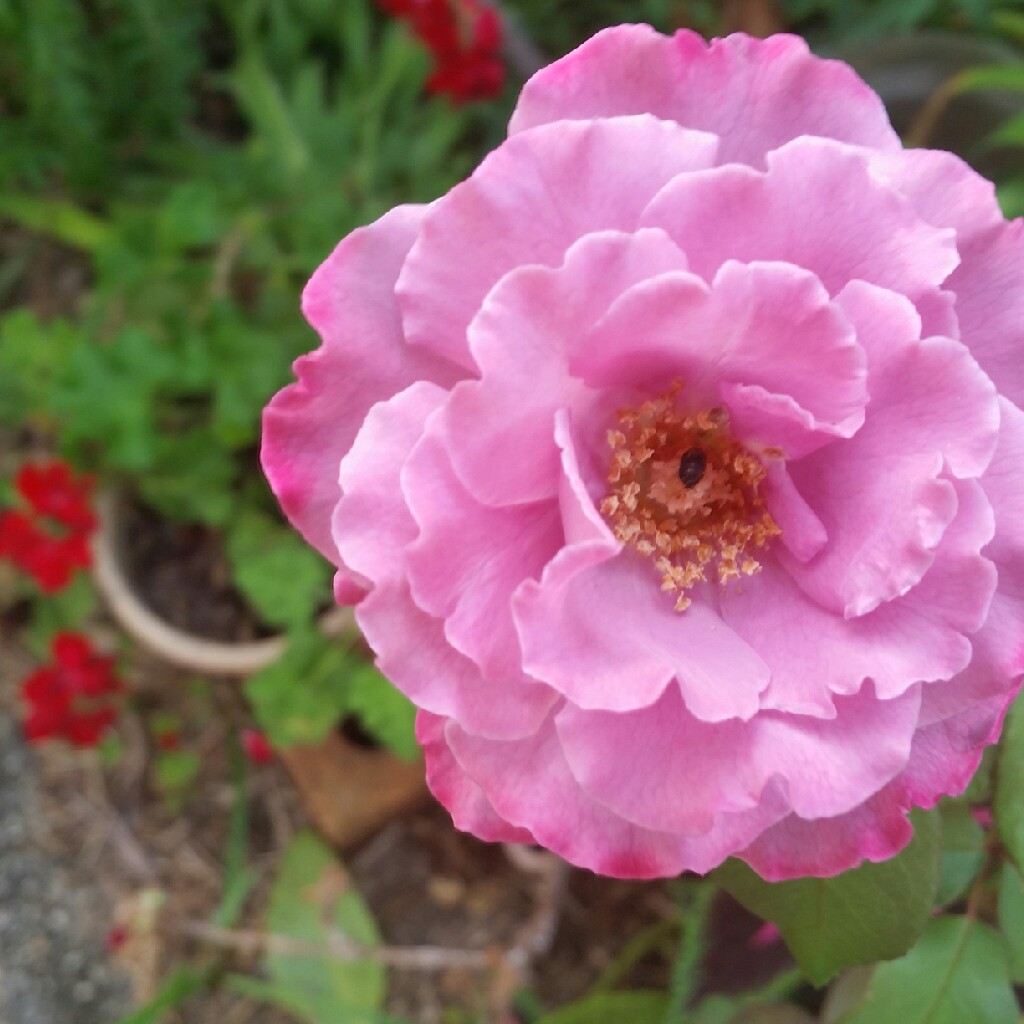
Rosa 'Angel Face'
Rose 'Angel Face'
'Angel Face' has clusters of extra rich, deep-lavender semi-double ruffled blooms with a ruby blushed edge are blessed with just about the most wonderful and intense perfume in a Floribunda. The modern Floribunda roses are a cross between the dwarf polyantha rose and the early hybrid tea roses. Hardy deciduous shrubs with stems more branched than those of the hybrid teas and variably prickly with hooked thorns. Flowers may be single, double or semi-double and are borne in large terminal clusters during mid-summer and usually again in late summer. A few are fragrant.
Contributed by @jagme1
-
Full sun
-
Occasional watering
-
Full Frost Hardy: 5F (-15°C)
-
Rich and free draining
Common name
Rose 'Angel Face'
Latin name
Rosa 'Angel Face'
type
Deciduous Perennial
family
Rosaceae
ph
5.0 - 8.0 Acid - Neutral
Plant & bloom calendar
-
Best time to plant
full grown dimensions
 0.50 M
0.90 M
0.50 M
0.90 M
Rosa 'Angel Face'
'Angel Face' has clusters of extra rich, deep-lavender semi-double ruffled blooms with a ruby blushed edge are blessed with just about the most wonderful and intense perfume in a Floribunda. The modern Floribunda roses are a cross between the dwarf polyantha rose and the early hybrid tea roses. Hardy deciduous shrubs with stems more branched than those of the hybrid teas and variably prickly with hooked thorns. Flowers may be single, double or semi-double and are borne in large terminal clusters during mid-summer and usually again in late summer. A few are fragrant.
Planting
From Late Autumn TO Late Spring
Prepare the planting site by digging over the bed and incorporate liberal quantities of well rotted manure or compost; lighten heavy clay soil with half rotted straw. Dress the top soil with plenty of peat mixed with hop manure and chopped up turf. Fresh animal manure is harmful to the roots and should only be used in the bottom spit. Where possible, prepare the planting site a few weeks in advance. Do this in late summer for planting in autumn. Plant at any time between late autumn and late spring. Prepare a planting mixture of bone meal and moist peat. Spread out the roots in the planting hole and add the planting mixture until the roots are covered. Add soil and firm in the plant by treading.














